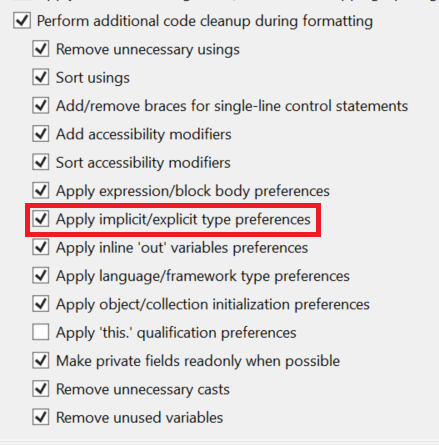ToList is considered a 'conversion' method. Because it's "To" + Type-Name. So if you have methods like ToDateTime it's apparent that that's it's producing a 'DateTime'.
In this case there is 'ToList' which is producing a 'List'. So the type is apparent and 'var' is used.
--
This behavior was present when the feature was added here: https://github.com/dotnet/roslyn/blob/a534500c8f7d473fbfdb72e4ede133ae99c55af8/src/Features/CSharp/Portable/Diagnostics/Analyzers/CSharpTypingStyleDiagnosticAnalyzerBase.State.cs#L191
--
I have used stylecop and resharper on and off over the years, and the general rule has always been if the type is somewhere to the right of the equals, use var (meaning it is apparent). If the type is not listed, use the explicit type.
In this case, the type is considered to be on the right of the equals (because it's in 'ToList').

when setting "When variable type is apparent" to "Prefer var" then using the FormatDocument functionality, the .cs file with the following line:
Is formatted/rewritten to:
I would expect it to leave the type definition and not replace
List<string>withvar.I have used stylecop and resharper on and off over the years, and the general rule has always been if the type is somewhere to the right of the equals, use var (meaning it is apparent). If the type is not listed, use the explicit type.
If you guys change the way apparent is defined it is going to screw up our whole codebase. I love that you are adding functionality in VisualStudio, but please do not change this definition. Is this a bug or did someone figure if Linq is used and even if the type isn't on the line it is still apparent? If the latter is the case, one could argue for everything being a var.
This issue has been moved from https://developercommunity.visualstudio.com/content/problem/322157/prefer-var-not-working-as-expected.html VSTS ticketId: 672386 These are the original issue comments: (no comments) These are the original issue solutions: (no solutions)